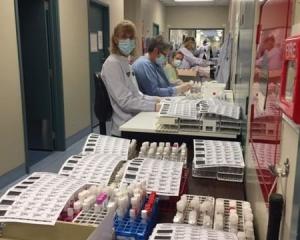
We all know that our health system has been under significant strain for a generation, despite ongoing government denials.
The current set of reforms is the latest effort to address a series of issues that affect the less well off.
New money is going into areas such as Pharmac which should improve access to prescribed medicines, as well as significant funding into primary care ($488million) and Maori health initiatives ($299million).
The new Health New Zealand receives more than $3 billion over two years, creating high expectations that it will deliver on Government goals of improving service access and equity, as well as $550million to cover the so-called DHB deficits (underfunding).
Meeting the expectations will be challenging given the massive administrative change process under way, as a wide-scale re-organisation normally takes at least two years to bed in.
Health workforce availability will also be a significant barrier that needs to be overcome and is not easily fixable overnight.
There is no mention of any changes in how healthcare is funded, meaning that deep-seated and scandalous inequities in non-urgent service access between the public and private sector will continue.
This will undermine the Government’s reform goals.
Perhaps next year, the Government will announce a new method to give all New Zealanders timely access to care through either the public or private sector.
In many countries, social insurance is the method for this: a debate around this in New Zealand is well overdue.
■ Prof Robin Gauld is pro-vice-chancellor and dean, Otago Business School.

Cancelled surgeries, long waits, rationed services, overburdened and a severely stressed workforce is the current reality.
A positive in the Budget is the commitment of $191million to Pharmac for medicines: the underfunding of life-saving/enhancing medicines is something that has caused many, many families considerable distress and resulted in premature death and less quality for everyday Kiwis who are not significantly wealthy.
New Zealand has had the worst access to funded modern medicines of the 20 OECD countries for many years and I am so pleased to see this amount of money allocated.
New Zealanders should not have to sell their homes to stay alive, when these medicines are available in comparative countries.
I am sure many New Zealanders will be pleased to see the huge amount of money allocated to mental health, although there may be many who are cynical as to whether the money will make it to the frontline where it is most needed.
I was also pleased to see the boost for ambulances and paramedics as I am often contacted from people unable to access this service in a timely manner.
Without increasing the numbers of healthcare professionals, increasing pay and improving conditions the health system will collapse.
I am constantly speaking to professionals who are at breaking point, working back-to-back shifts for the sake of the patients and their colleagues.
These people could be paid significantly more in Australia, with far better conditions.
I guess I am saddened for them and worried for the patients not to see significant investment announced for the frontline workforce.
■ Melissa Vining is a trustee on the Southland Charity Hospital board.












